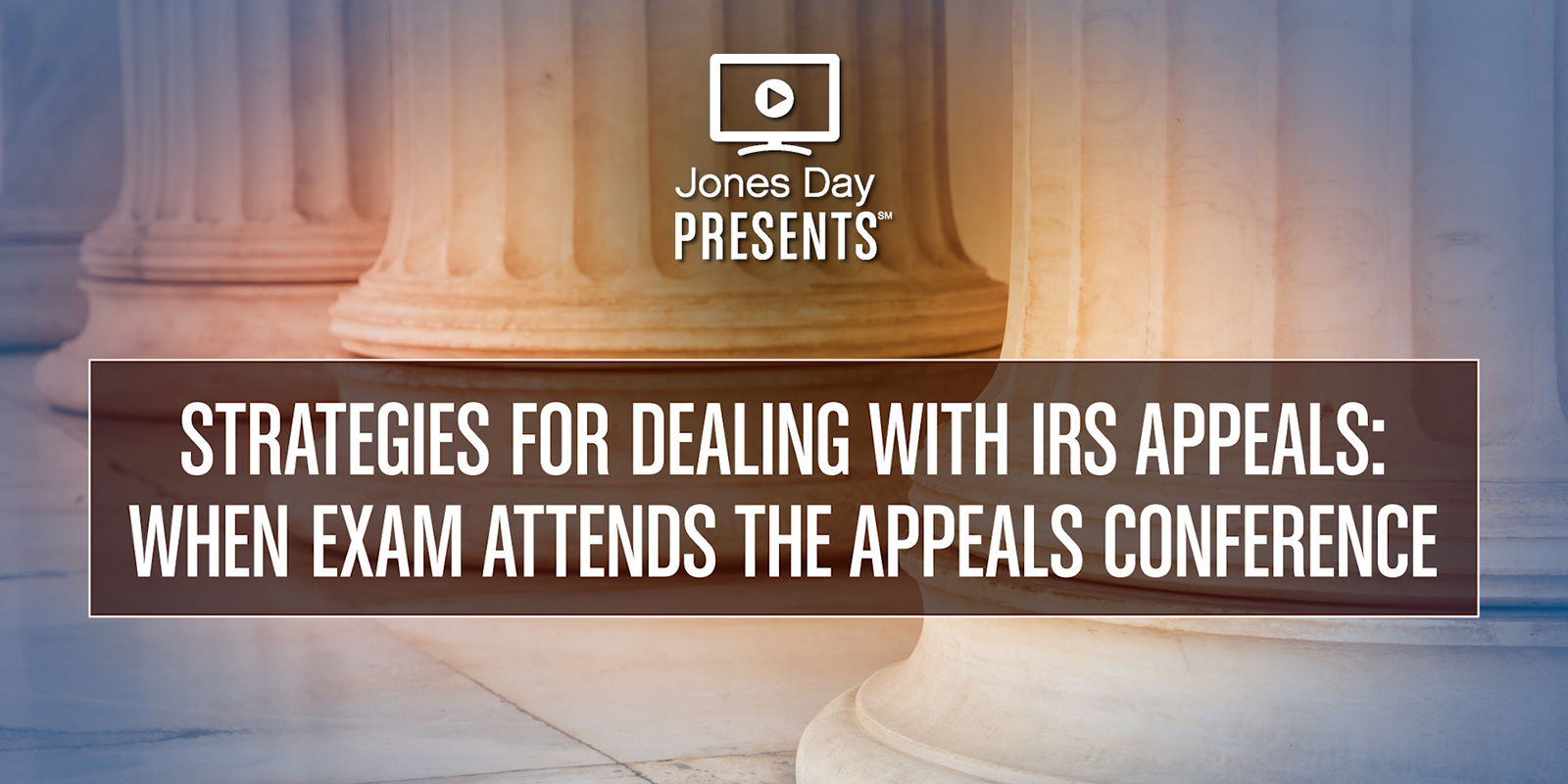
Jones Day Presents: Client Strategies for the IRS Appeals Judicial Approach and Culture Project ("AJAC")
In this installment of Jones Day's continuing series of videos focusing on tax disputes, partner and tax litigator Chuck Hodges explains the Appeals Judicial Approach and Culture ("AJAC") Project's rules and procedures and talks about how companies need to adjust their strategies in response to the new procedures.
In the second in a series of videos focusing on tax disputes, Jones Day partner and tax litigator Chuck Hodges discusses the AJAC Project and how it can impact strategies for corporations working to resolve disagreements with the IRS.
Read the full transcript below:
Chuck Hodges:
Over the past few years, the IRS Appeals Office has implemented what they refer to as the Appeals Judicial Approach & Culture Project or AJAC. What is AJAC? It's essentially some rules and procedures that appeals is trying to implement that returns appeals to this quasi-judicial proceeding. Among those new rules allows appeals to invite exam as well as IRS counsel to the conference in which the taxpayer is going to present their case. A lot of practitioners have a problem with appeals allowing this. At Jones Day, what we tell our taxpayers are, "Look, for now, we've got to embrace this. It's a change that we have to deal with." And so how do we recommend that taxpayers now look at this process? There's three suggestions.
Chuck Hodges:
One is, take a closer look at who now should attend for the taxpayer their conference. Maybe before you would have just invited the taxpayer and a technical expert on the tax law. Well, now you have examined the room. You have IRS counsel in the room. And so now with this quasi-mediation session, you need to have on your side someone who is experienced in the mediation process. Also, what if your industry expert or your valuation expert could also provide some clarity to the issues? You may want to invite your expert because again, you have a quasi-mediation session.
Chuck Hodges:
Next, I mentioned in a prior video this Acknowledgment of Facts IDR. A lot of taxpayers bypass it because no summons can enforce it, but this is a place where you want to think it through, because if you can during the exam process, get exam to agree to a lot of the facts you consider to be relevant and a lot of documents that you consider to be relevant, if you can get them to agree into a written document, that's good for both parties because now by having this written document that shows the documents that are not in dispute and the facts that are not in dispute, it minimizes the amount of issues that the appeals officer has to resolve.
Chuck Hodges:
And the next part that can be looked at is an advantage of the fact that exam's in the room during this conference is that it reinforces appeal's role as this neutral party. So therefore they're testing the credibility of both the position of the exam, as well as the taxpayer. So in the end, this change is here for now. For now we have to deal with the fact that examiners and IRS counsel may be in the room for the taxpayers conference. And because of that, taxpayers, we got to embrace it and instead, all we have to do is change our approach to look at who should be in attendance, what facts and documents can we get exam to agree to, and then reinforce appeals to actually look at both sides and resolve the matter based upon the hazards of litigation standard.


